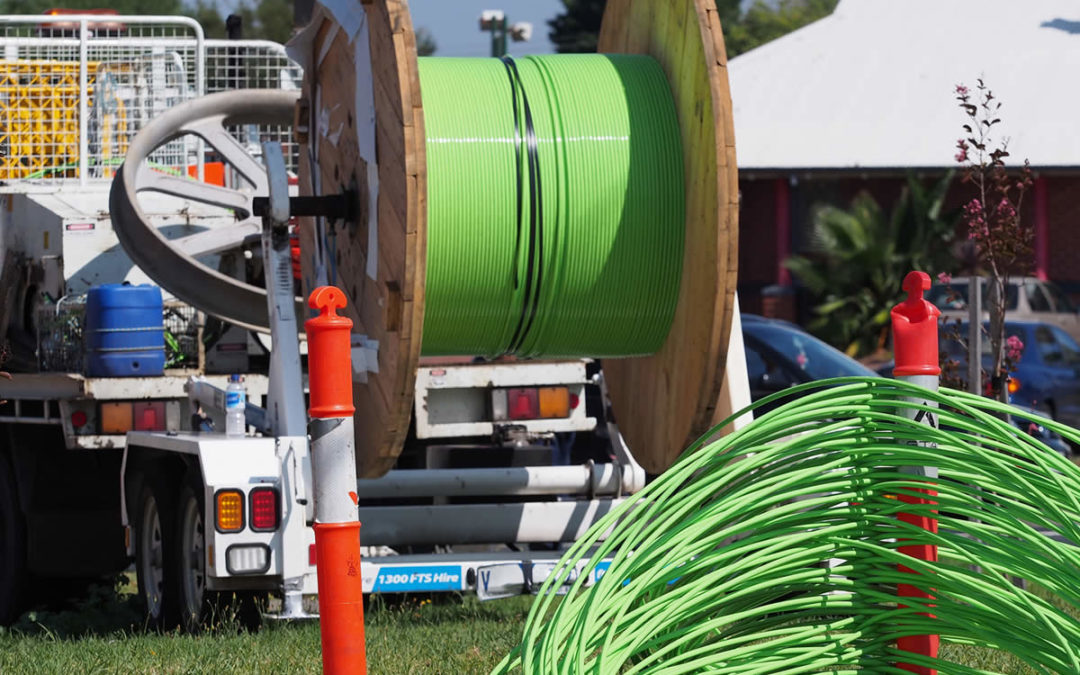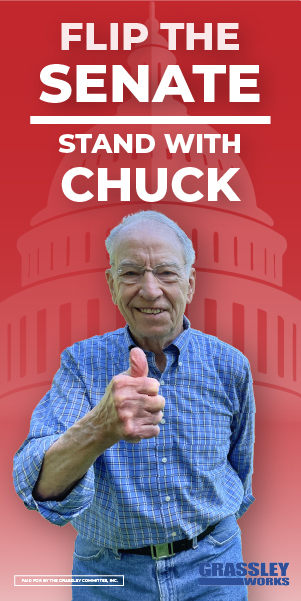Broadband internet access has always been an important issue, but the coronavirus pandemic laid bare the work required to bridge the digital divide. Karen Kerrigan, President & CEO of the Small Business & Entrepreneurship Council, joined Iowa Field Report to discuss where the US stands on broadband expansion, what Congress needs to do and what a state like Iowa stands to gain.
Our conversation began where most do these days, The COVID-19 coronavirus pandemic. Karen began by conceding that broadband has always been an important issue, but the coronavirus pandemic brought the topic to the forefront of many policymakers’ minds. With both personal choice and executive orders keeping people home and out of brick and mortar establishments, businesses have to adapt to survive.
“Technology is helping us right now, and broadband is so critical for all Americans, but especially for small businesses,” Kerrigan said.
Kerrigan points out that Americans’ minds are shifting and that more people are considering moving away from bigger cities. She notes that broadband “was very important before so businesses could compete anywhere, but now … there’s an opportunity here for rural America.”
The good news is that both sides of the aisle can get behind this effort.
“Because this issue impacts underserved communities and rural, suburban, and urban areas across the country, it enjoys tremendous bipartisan support,” Kerrigan points out.
Congress recently passed new legislation to help address this issue. The DATA act will improve the quality of the FCC broadband availability map. The new, accurate map is important but only a first step, Kerrigan notes. “So the DATA Act passed overwhelmingly in Congress, and the President signed it into law. The next step is for Congress to fund it. That is so the FCC can finish working on that map now.”
Kerrigan stressed to save taxpayer money; an accurate map is needed. “If we’re going to ensure the best use of these dollars, we have to have that precise map to spend this money efficiently. “
Both Former Governor Branstad and Governor Reynolds understood the need for high-speed Broadband for Iowans was not only a quality of life issue but critical for business competitiveness. Iowa businesses need it to compete domestically and internationally, but it is also vital for attracting talent and investment. Iowa currently ranks 45th in the nation for broadband access.
In our interview, Karen spoke passionately about this issue, sharing that she and the Small Business & Entrepreneurship Council have been working on this for over two decades. She contrasted the US situation with Europes as few could, highlighting what is going well and what can be improved from a public policy point of view.
She pointed to the fact that the US has not had the same problems as Europe. For example, their network has struggled to keep up, resulting in slow speeds and lapses in service. She maintains that’s because the US has used a light-touch regulatory approach. The key to long term success, she believes, is to not over-regulate this area, and that will ensure competition continues, meaning a better provider network for consumers.
“When it comes to tax and regulatory policy in general, there has been a lot done on the tax side too, relieve the private sector of some of these burdensome taxes, and that has created more resources that have gone into an investment of the network,” she said.
She continued “And with this very uncertain environment right now, you know, businesses of all across every sector, but particularly in the telecom sector, they need every incentive possible to invest, right, because we don’t know how the economy is going to look six months from now or a year from now.”
Kerrigan praised the FCC and its chairman Ajit Pai, Chairman, “You know, he’s kind of he’s had a perfect handle on this and he’s done just amazing work. He’s been moving the ball, both on the regulatory front and getting us to 5G quicker, what needs to happen in terms of removing regulatory barriers and promoting investment.”
When it comes to things to keep an eye on, she hopes that if Congress appropriates new funds, they don’t try to micromanage where they go. In her opinion, the Universal Service Fund could use a second look. It provides subsidies sometimes to places like libraries and schools. But since many of those aren’t open or accessible right now, the money being funneled through it risks exacerbating the problem of improving broadband access and connectivity rather than helping.
Kerrigan touts the FCC and the reverse auction approach as the way to go. “So these reverse auctions, they leverage transparency and competitive forces to identify the provider that’s willing and able to build these facilities at the lowest cost, right. So that maximizes the efficient allocation of public resources, she says.
Broadband generally refers to any connection to the internet that is faster than dial-up (setting the bar pretty low). The FCC defines broadband as any service with a minimum of 25 Mbit/s downstream and a minimum of 3 Mbit/s upstream.
While states across the country will benefit, Iowa stands to gain a lot from increased broadband access. Improving broadband access could result in individuals relocating to Iowa with the constraints of working in the company office removed. But there must be high-speed broadband. Karen cited a recent Gallup survey showing 27% of Americans would like to live in a rural area; only 12% want to be in a big city. “That’s an opportunity for Iowa, there’s a great attraction, it’s affordable, great quality of life, But you need connectivity,” she explained.
With all the destruction and negatives that have come with the COVID-19 pandemic, Karen hopes that making genuine progress on addressing the United States’ digital divide will be a possible silver lining that results.
“COVID-19 really shed bare the critical importance of broadband and broadband connectivity. This is about how people are working, how businesses are operating, how people are getting their health care, how kids are being educated. Now is the time for Congress to seize this moment. She declared. At the concussion, she went on, “If it doesn’t get done now, when will it get done, right?”



